Events in January will shape Saudi market in 2024
1 February 2024

Register for MEED's guest programme
January was a pivotal month for Saudi Arabia with a series of significant events that will shape how the market performs in 2024.
The month started well with major project deals signed that boosted confidence further after the market recorded its best-ever total value of contracts awarded. That optimism was tempered later in the month as fresh concerns over the outlook for project spending emerged after a high-profile corruption case and a government directive instructing Saudi Aramco to halt its plans to increase the kingdom’s oil production capacity.
Oil decision
In a statement on 30 January, Aramco said it had received a directive from the energy ministry to maintain its maximum sustainable capacity (MSC) at 12 million barrels a day (b/d). The state energy giant had previously been set a target of achieving an oil output spare capacity of 13 million b/d by 2027.
While some have interpreted the decision as a political move aimed at propping up the global oil price, others say it has been made to reduce capital expenditure commitments so Aramco can make larger dividend payments to its shareholders. The government holds a 90% share of the company, the PIF owns an 8% stake, and the remaining 2% of the shares are listed on the Saudi Stock Exchange (Tadawul).
Building boom
For construction, the largest contract award in January was the $4.7bn deal signed by Italy’s WeBuild to deliver three dams at the Trojena mountain resort in Neom that will host the 2029 Asian Winter Games. Other major deals included the SR1.8bn deal signed by Dubai-based Alec for constructing the Ilmi Centre at Misk, and the local MBL being selected for the contract to build the opera house at Jeddah Central.
Meanwhile at Al Ula, the kingdom’s Oversight & Anti-Corruption Authority (Nazaha) has suspended the CEO of the Royal Commission for Al Ula Governorate on the grounds of corruption and money-laundering charges. The charges against the executive, Amr Bin Saleh Abdul Rahman Al Madani, relate to his activities both before and during his role at the Royal Commission, involving the awards of contracts to a company named National Talents Company (TalentS).
Economic forecasts
These developments came amid a backdrop of mixed economic data. In mid-January, the Washington-based IMF revised the expected real GDP growth figure for Saudi Arabia in 2024 to 2.7%, down from the projection of 4% that it made three months earlier in October. The downgraded forecast reflects Saudi Arabia’s deepening oil production cuts.
Saudi Arabia’s additional voluntary cuts are by far the deepest by Opec+, with Riyadh agreeing to cut its oil production by a further 1 million barrels a day (b/d) through to the end of Q1 2024 – a cut double the size of the voluntary 500,000 b/d reduction by Russia – the next largest – for the same period.
Despite Western sanctions, Russia has also overtaken Saudi Arabia as China’s biggest source of oil imports in 2023. According to Chinese customs data released on 22 January, China – the largest oil importer in the world – purchased a record 107.2 million tonnes of crude oil from Russia last year, about 25% more than in 2022. Falling by 1.8%, China imported about 86 million tonnes of oil from Saudi Arabia.
A more positive indicator for Saudi Arabia is FDI. The kingdom’s foreign direct investment (FDI) inflows increased by 29.1% in the third quarter of 2023 compared to the previous three months, according to the Saudi Central Bank.
FDI inflows reached SR7.99bn ($2.13bn), rising from SR6.2bn recorded in the previous quarter. The announcement follows last year’s amendment of the country’s FDI calculation methodology by the government in Riyadh, showing that inflows doubled from 2015 to 2022.
Debt deals
As the economic outlook cools, Riyadh has tapped the debt markets. At the start of January, the Finance Ministry said it expects to borrow $23bn in 2024. The financing will be used to finance the deficit in the state budget and to pay existing debt that matures. The ministry added that by the end of 2024, it expects the kingdom’s total debt portfolio to reach SR1.115tn, which is about 29 per cent of GDP. That announcement was quickly followed by the issuance of $12bn of bonds under Saudi Arabia’s Global Medium-Term Note Issuance Programme (GMTN). Later in January, the Public Investment Fund (PIF) completed a $5bn bond issuance.
Both the government and the PIF could receive a cash boost from selling more shares in Saudi Aramco on the Tadawul. On 31 January, Bloomberg reported that the kingdom is working with a group of advisers and is seeking to potentially raise at least $10bn.
These developments are important for the projects sector. According to regional projects tracker MEED Projects, there are contracts valued at $181bn at the tender stage in the kingdom. The prospects for many of these pending deals will be shaped by what happened in January.
Exclusive from Meed
-
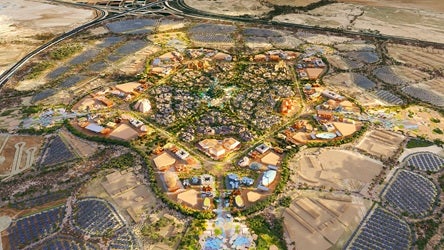 Riyadh seeks contractors for Expo 2030 buildings
Riyadh seeks contractors for Expo 2030 buildings24 February 2026
-
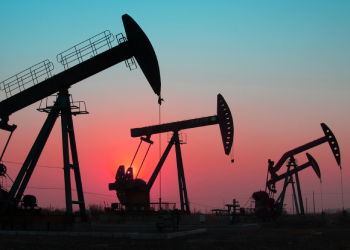 Kuwait considers cancelling $988m upstream tender
Kuwait considers cancelling $988m upstream tender24 February 2026
-
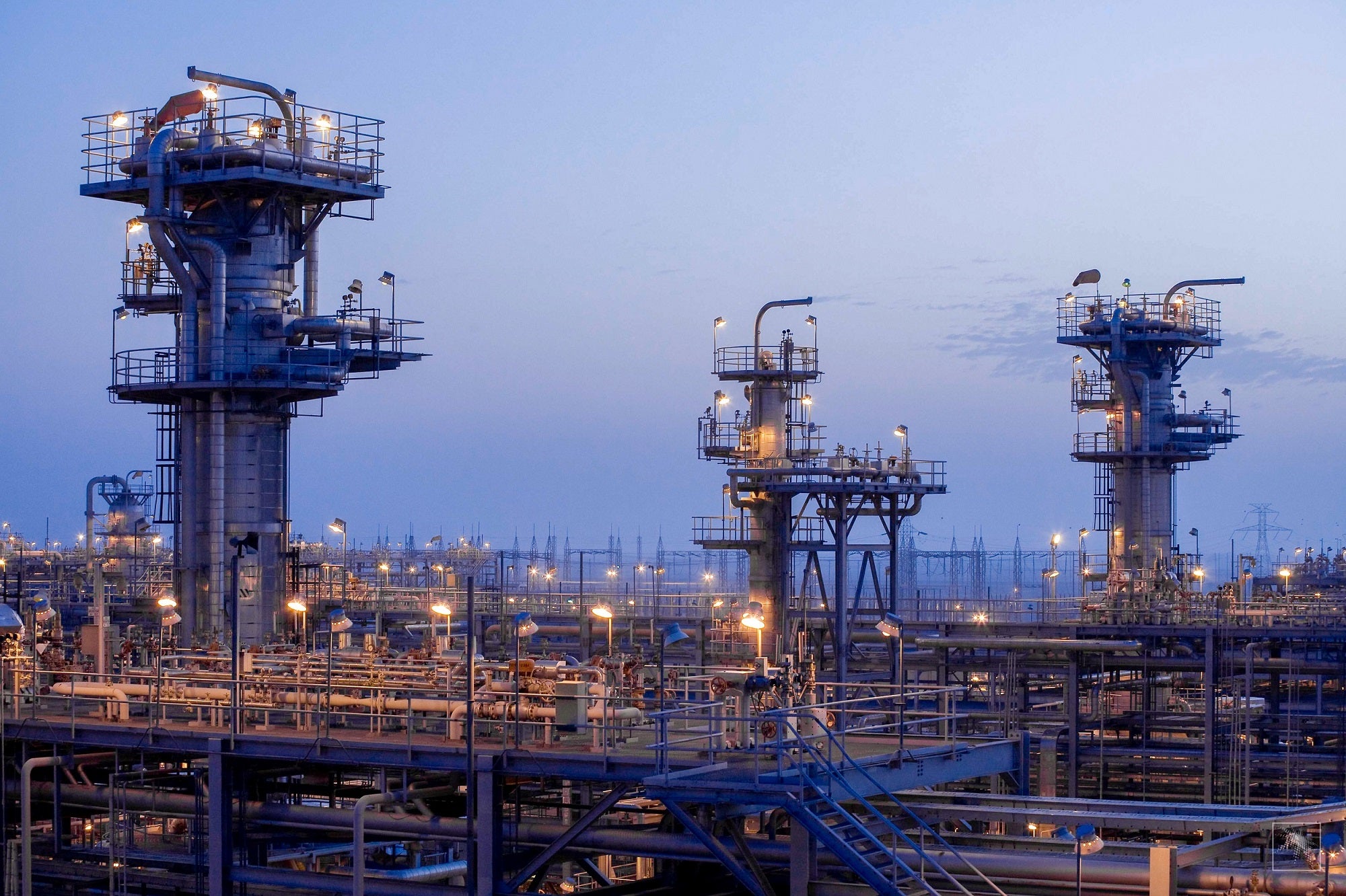 Contractors express interest in Bab gas cap main plant
Contractors express interest in Bab gas cap main plant23 February 2026
-
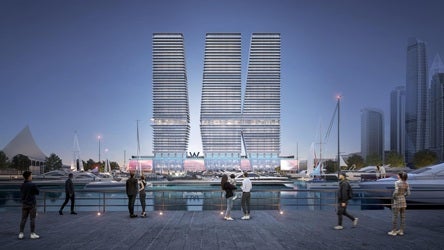 Arada awards $408m W Residences Dubai Harbour contract
Arada awards $408m W Residences Dubai Harbour contract23 February 2026
-
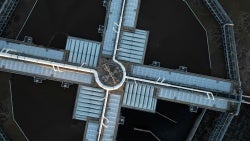 Local contractor selected for Kuwait water project
Local contractor selected for Kuwait water project23 February 2026
All of this is only 1% of what MEED.com has to offer
Subscribe now and unlock all the 153,671 articles on MEED.com
- All the latest news, data, and market intelligence across MENA at your fingerprints
- First-hand updates and inside information on projects, clients and competitors that matter to you
- 20 years' archive of information, data, and news for you to access at your convenience
- Strategize to succeed and minimise risks with timely analysis of current and future market trends

Related Articles
-
 Riyadh seeks contractors for Expo 2030 buildings
Riyadh seeks contractors for Expo 2030 buildings24 February 2026

Saudi Arabia’s Expo 2030 Riyadh Company (ERC), tasked with delivering the Expo 2030 Riyadh venue, has invited contractors to express their interest in a contract to deliver the first set of buildings at the site.
The structures include several exhibition assets, an auditorium, food and beverage spaces, retail and other associated facilities.
The buildings will be located on the main boulevard.
Firms have been allowed until 26 February to express their interest in the contract.
Tendering activity is gathering pace for several other packages that are part of the Expo 2030 masterplan. Earlier this month, MEED exclusively reported that ERC had tendered a contract for the construction of site offices required for the initial construction works.
This followed the Royal Commission for Riyadh City issuing a design-and-build tender on 5 February for the construction of a new metro station serving the Expo 2030 site.
The station will be located on Line 4 (Yellow Line) of the Riyadh Metro network.
Construction work on the Expo 2030 Riyadh site is progressing at an accelerated pace. In January, ERC awarded an estimated SR1bn ($267m) contract to deliver the initial infrastructure works at the site.
The contract was awarded to local firm Nesma & Partners.
The scope of work covers about 50 kilometres of integrated infrastructure networks, including internal roads and essential utilities such as water, sewage, electrical and communication systems, and electric vehicle charging stations.
Contractors are also bidding for infrastructure lots two and three. In December, MEED reported that ERC had floated another tender for the project’s initial infrastructure works.
The masterplan encompasses an area of 6 square kilometres, making it one of the largest sites designated for a World Expo event. Situated to the north of the Saudi capital, the site will be located near the future King Salman International airport, providing direct access to landmarks within Riyadh.
Countries participating in Expo 2030 Riyadh will have the option to construct permanent pavilions. This initiative is expected to create opportunities for business and investment growth in the region.
The expo is forecast to attract more than 40 million visitors.
In a statement, Saudi sovereign wealth vehicle the Public Investment Fund said: “During its construction phases, Expo 2030 Riyadh and its legacy are projected to contribute around $64bn to Saudi GDP and generate approximately 171,000 direct and indirect jobs. Once operational, it is expected to contribute approximately $5.6bn to GDP.”
https://image.digitalinsightresearch.in/uploads/NewsArticle/15741954/main.jpg -
 Kuwait considers cancelling $988m upstream tender
Kuwait considers cancelling $988m upstream tender24 February 2026

State-owned Kuwait Petroleum Corporation (KPC) is discussing the potential cancellation of a contract worth nearly $1bn, according to industry sources.
The contract is focused on developing Jurassic Light Oil (JLO) export facilities and upgrading the existing export network.
India’s Larson & Toubro submitted a low bid of $988m for the contract in October last year.
The two bids submitted for the contract were:
- Larsen & Toubro (India): KD303.5m ($988m)
- Petrofac (UK): KD310.6m ($1.01bn)
The project was originally tendered in November 2024, with a bid deadline of 1 December the same year.
The bid deadline was extended several times before bids were ultimately submitted.
The client on the project is the state-owned upstream operator Kuwait Oil Company (KOC).
One source said: “KOC has decided to let KPC take the decision, as it was launched as a KPC initiative project in 2019.
“The KOC committee is waiting for KPC to schedule the meeting.”
Another source said: “Everyone knows that this project is at risk of cancellation as the bids came in extremely high compared to the budget.
“They came in at more than double the project’s proposed budget.”
The latest discussions around the potential cancellation of the JLO contract come after four upstream contracts worth a total of $7.73bn were cancelled in January.
The cancelled contracts were:
- Separation Gathering Centre (SGC) 1 and Water Injection Plant (WIP) 1
Low bidder: Tecnicas Reunidas (Spain) – $2.47bn
- SGC 3 and WIP 3
Low bidder: Larsen & Toubro (India) – $2.48bn
- Effluent Water Disposal Plants (EWDP) 1 & 2 expansion project
Low bidder: Larsen & Toubro (India) – $1.30bn
- Installation of WIP 4
Low bidder: Petrofac (UK) – $1.48bn
All of the projects received low bids that exceeded their allotted budgets.
In 2025, Kuwait recorded its highest total annual value for oil, gas and chemicals contract awards since 2017, according to data from regional project tracker MEED Projects.
A total of 19 contract awards with a combined value of $1.9bn were awarded last year.
This was more than four times the value of contract awards in the same sectors in 2024, when awards totalled just $436m.
It was also above the $1.7bn peak recorded in 2021, but it remained well below the contract award values seen in 2014-17, when several large-scale, multibillion-dollar projects were awarded in the country.
The surge in the value of contract awards in 2025 came after Kuwait’s emir indefinitely dissolved parliament and suspended some of the country’s constitutional articles in May 2024.
Prior to the suspension of parliament, Kuwait suffered from very low levels of project awards for several years amid political gridlock and infighting between the cabinet and parliament.
This meant that important decisions about projects could not be made, something that was seen as a major obstacle for the progression of strategic oil projects.
https://image.digitalinsightresearch.in/uploads/NewsArticle/15721142/main.png -
 Contractors express interest in Bab gas cap main plant
Contractors express interest in Bab gas cap main plant23 February 2026

Contractors have expressed interest to Adnoc Gas in participating in the main tendering exercise for a project involving the development of infrastructure to process incremental gas output arising from the unlocking of gas caps at the Bab onshore hydrocarbons development in Abu Dhabi.
As part of its 2030 upstream production increase goals, Abu Dhabi National Oil Company (Adnoc Group) is working to extract gas from four underdeveloped gas cap reservoirs at the Bab onshore field development – Thammama A, Thammama B, Thammama F and Thammama H. While the Thammama A, B and H reservoirs are estimated to collectively produce 1.45 billion cubic feet a day (cf/d) of gas, output from the Thammama F gas cap is expected to be at a rate of 396 million cf/d.
Existing trains at the Habshan processing complex in Abu Dhabi will be unable to handle the new gas volumes. Therefore, Adnoc Gas needs to build new facilities to process an additional volume of up to 1.85 billion cf/d of raw gas when its parent company starts production from the Bab gas caps.
To this end, Adnoc Gas is planning to build a gas processing plant in the Bab area, about 170 kilometres from Abu Dhabi, along with associated pipeline networks and other ancillary units, as part of the broader Bab gas cap development project. It has divided the engineering, procurement and construction (EPC) scope of work on the project into four packages:
- EPC package 1 – Main Bab gas cap plant
- EPC package 2 – Early civil works
- EPC package 3 – Pipelines
- EPC package 4 – Non-process area works
Abu Dhabi Securities Exchange-listed Adnoc Gas issued an expressions of interest (EoI) document to contractors for the main EPC tendering process for the main Bab gas cap plant on 10 February, setting an initial deadline of 17 February for submission of EoI responses, MEED recently reported.
Adnoc Gas then extended the deadline for the submission of responses until 20 February, with contractors complying by that date, according to sources.
The other three packages remain in the EoI and the main contract tendering stages, the sources said.
Prior to issuing the EoIs for the Bab gas cap development project packages, Adnoc Gas completed an early engagement process with contractors in September and October last year, as MEED previously reported.
In December last year, Adnoc Gas awarded the front-end engineering and design (feed) works for the Bab gas cap development project, which will increase its gas processing capacity by about 20%, to Australia-based consultancy Worley. The feed contract has a duration of more than 1.2 million man-hours, making it the largest-ever engineering job awarded by Adnoc Gas.
Adnoc Gas currently has a capital expenditure (capex) commitment of $20bn for the 2023-29 period, which is on course to increase to about $28bn as the company strives to achieve financial investment decision (FID) on the second and third phases of its rich gas development programme in the first quarter of 2026.
The second and third phases involve building a natural gas liquids fractionation train at the Ruwais gas processing facility and a new gas processing train at the Habshan complex, respectively, Peter Van Driel, the company’s chief financial officer, said recently on a call with journalists.
Adnoc Gas’ capex commitment could exceed $30bn when the company is able to achieve FID on the Bab gas cap development project, which is currently expected to happen later this year, Van Driel further said.
https://image.digitalinsightresearch.in/uploads/NewsArticle/15717536/main3120.jpg -
 Arada awards $408m W Residences Dubai Harbour contract
Arada awards $408m W Residences Dubai Harbour contract23 February 2026
Register for MEED’s 14-day trial access
Sharjah-based real estate developer Arada has awarded a AED1.5bn ($408m) contract for the main construction works on its W Residences project at Dubai Harbour.
The contract was awarded to the local Engineering Contracting Company.
The development comprises 490 branded residences across three towers.
The project's enabling works, including excavation and piling, have begun and are being carried out by another local firm, APCC Piling & Marine Contracting.
Arada has awarded APCC a separate AED51m ($14m) contract to undertake the enabling works.
The development will consist of residential, retail and leisure facilities and will be operated by US-based Marriott International.
Arada launched the project in October 2024, as MEED reported.
The latest contract award follows Arada's award of two contracts, worth AED2.7bn ($735m), for construction work on all four phases of the Masaar 2 residential community in the Rowdat district of Sharjah.
Arada awarded Sharjah-based Intermass Contracting a contract for the construction of phases one, three and four.
Abu Dhabi-based contractor Pivot Engineering & General Contracting won a contract to build the second phase of the project.
The overall scheme encompasses the construction of 1,997 residential units across all four phases.
Construction is expected to begin shortly, and the project is slated for completion by 2028.
Arada is the developer behind three masterplanned residential communities in Sharjah. The Aljada, Masaar and Nasma Residences communities are valued at a combined AED33bn.
https://image.digitalinsightresearch.in/uploads/NewsArticle/15717440/main.jpg -
 Local contractor selected for Kuwait water project
Local contractor selected for Kuwait water project23 February 2026

Local firm United Gulf Construction has been selected for a contract to upgrade the Hawally water distribution complex in Kuwait's Hawalli Governorate.
The Ministry of Electricity, Water & Renewable Energy (MEWRE) has requested approval from the Central Agency for Public Tenders (Capt) to award the contract to the lowest bidder.
The request was made at a meeting on 11 February, following completion of the project’s preliminary budget.
According to regional project tracker MEED Projects, United Gulf Construction submitted the lowest of three bids for the contract in March 2025.
These were:
- United Gulf Construction – $137m
- Khalid Ali Al-Kharafi & Brothers – $147m
- Alghanim International General Trading & Contracting – $219m
The project involves development of the existing water distribution complex in Hawalli. Works include construction of distribution facilities, valve chambers, thrust blocks, manholes and associated infrastructure.
The scheme is intended to increase freshwater storage capacity by 66 million gallons a day. It will also raise potable water pumping capacity to 54.5 million gallons a day and brackish water pumping to 23.5 million gallons a day.
The Hawally complex serves one of Kuwait’s most densely populated governorates. The upgrade is expected to address chronic low water pressure, particularly during peak summer demand, and ensure continuous supply.
At the recent meeting, the MEWRE provided the required approval letter from the Finance Ministry, which is a legal prerequisite for tender decisions.
Capt’s board instructed the MEWRE to select the lowest bidder and submit a final recommendation within 10 working days.
Construction on the project is expected to start in September 2026 and take about two years to complete.
https://image.digitalinsightresearch.in/uploads/NewsArticle/15717372/main.jpg



